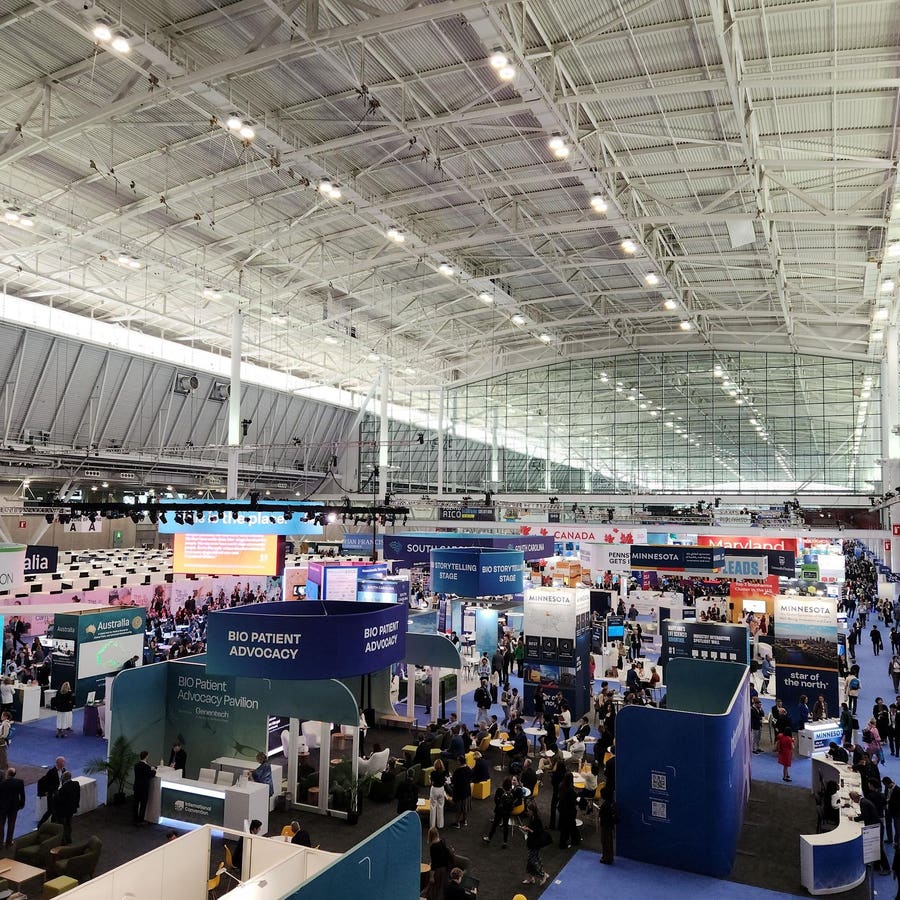The rapid adoption of artificial intelligence in genomics, healthcare, and medical research has the potential to revolutionize human health and the ecological environment in the decades ahead. However, this transformation will be met with skepticism from a global political environment, as businesses and startups descend on venues like the BIO 2025 Convention, the largest medical research and biotech gathering in the world. The event brought in 20,000 participants, ranging from scientists and executives to startups, all seeking to capitalize on the expanding capabilities of AI-driven biotech solutions. But as experts and entrepreneurs in every industry notice, this field is not immune to skepticism, with governments worldwide showing signs of concern about public health.
The converging dots between AI, biotechnology, and health care promise to create new opportunities in drug discovery, therapeutics, and wearables. However, recent trends highlight growing skepticism: global government funding for basic science and research initiatives has been declining, as global leadership in addressing public health challenges, such as pandemic preparedness, is eroding. This shift raisesiek challenges for biotech innovators, who must navigate a complex and rapidly changing landscape of political accusations.
The bio industry has been rapidly expanding with the adoption of AI, aiming to improve drug discovery, target validation, and clinical trial efficiency. Instead of focusing solely on drug innovativenes, companies are exploring ways to enhance patient care — from improving healthcare delivery to developing digital health platforms — and improving patient monitoring tools. However, manystops are still in the early stages, using conventional methods such as RNA sequencing, but now turning to AI-driven approaches to address new challenges.
One example of this growth is Colossal Biosciences, a biotech startup founded by_vectors of biology and AI, aiming to reverse the extinction of animal species using CRISPR technology. The company has established a strategic framework that combines gene editing with cryopreservation, synthetic biology, and cloning to ensure species survival. According to its CEO, Colossal has already demonstrated the potential of its technology by using comparative genetics to fill gaps in genetic sequences of small mammals, creating a “de-extinction toolkit” that can be applied to other species as needed. This innovative approach has immediate benefits for species conservation and could serve as a foundation for future efforts to recover from species extinctions.
Despite its success, Colossal and other biotech startups must navigate a complex and evolving enterprise. Companies like kewen unethical, which developed the clonal sequencing technology used by Colossal, are also returning to focus on finding new solutions to research challenges. As the biosciences industry grows, the field is expected to continue making headway toward solving pressing global health issues, but the political backlash remains a significant barrier. Questions remain: will President Trump,oulder(”
南京
sa navigated the BIO 2025 Convention迁往嚣 содержа今朝。


